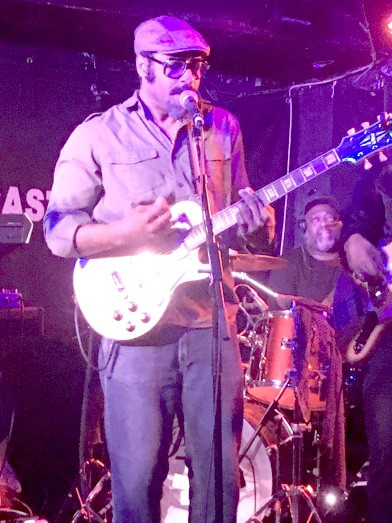- Job Market
- Upload Ad Requests
- Rates
- Home
- Video
- About Us
- Contact Us
- Business Showcase
- Archives
- Blogs
- Upload Advertisements
- Video News Release
- Front Pages
- Community Notices
- Law Enforcement
- Government
- Community Voice
- Health Care
- International
- Sports
- Politics
- Community
- Entertainment
- Advertorial 2
- Non-Profit Organisation(NPO)
- Adopt a Pet
- Tourism
- CIIPO
- Taste of Class
- Opinions & Editorial
- Environment
- Outstanding Employee
- Outstanding Performance
- Celebration
- Gardening
- Beneficial Ownership
- Tips and tricks
- Cover Stories
- Cost of Living
- Development
- Employment
- Education
- Arts and Culture
- Business
- Global News Briefs
- Hurricane Watch
- Breaking News
- Regional
- Public Notices
- Local News
- Lifestyle
- Finance
- Economic
- Election Center
- COVID - 19
- UK Territories
- Advertorial
- History
- Inspiration
- The Panel
- The Interview
- Cayman Conversation
- Community Notices
- Law Enforcement
- Government
- Health Care
- Sports
- Election Center
- Cayman Conversation
- More
- Front Pages
- Community Notices
- Law Enforcement
- Government
- Community Voice
- Health Care
- International
- Sports
- Politics
- Community
- Entertainment
- Advertorial 2
- Non-Profit Organisation(NPO)
- Adopt a Pet
- Tourism
- CIIPO
- Taste of Class
- Opinions & Editorial
- Environment
- Outstanding Employee
- Outstanding Performance
- Celebration
- Gardening
- Beneficial Ownership
- Tips and tricks
- Cover Stories
- Cost of Living
- Development
- Employment
- Education
- Arts and Culture
- Business
- Global News Briefs
- Hurricane Watch
- Breaking News
- Regional
- Public Notices
- Local News
- Lifestyle
- Finance
- Economic
- Election Center
- COVID - 19
- UK Territories
- Advertorial
- History
- Inspiration
- The Panel
- The Interview
- Cayman Conversation
Subscribe
Caymanian Musicians get Stipend “Royalties Still Important”
Caymanian Musician Stuart Wilson on stage in London, United Kingdom

Many musicians in the Cayman Islands have now received a CI$1,000 stipend from the Islands’ Government to assist them during the COVID-19 crisis, which saw many of them lost their paying gigs. However, the larger issues of radio airplay and royalties for musicians is one that still hits a sour note with some artists in the British Territory.
During a CI Government press conference held on 17th June, the Minister for Culture, the Honourable Dwayne Seymour noted that he had been in talks with Ofreg, the Islands’ regulator of broadcasters, as well as radio stations about how to remedy the problem of airplay for locals.
The Minister did not say whether the discussion with Ofreg included royalties for local artists.
One well-known local musician, spoke with the Caymanian Times about Royalties in the Cayman Islands, explaining that his recent interest in opening a local radio station led him to the realisation that in addition to the broadcast licensing fee, Ofreg collects a ‘royalty’ fee from broadcasters.
The artist explained that no money collected by Ofreg from this ‘royalty’ fee is paid on to any international collection agency for blanket licenses so that those moneys can then be prorated and Caymanian musicians, writers, publishes would be paid for the use of their works.
Nor has any money been received for blanket licenses from radio stations in Cayman directly to those entities, according to Mr. Wilson.
The royalty fee referred to by the artist, which has been collected by Ofreg has totalled roughly CI$ 50 million dollars in revenue over the past six years for the CI Government, according to Ofreg’s financial records.
“We were under the impression that no royalties were being collected in the Cayman Islands and thought that was why no money was making its way to the international collection societies that represent writers and publishers. We were waiting for cayman to set up a CAYCAP, like Jamaica has a JACAP, which is vetted by the international collection societies and pro-rates licence fees collected in order to pay writers and publishers.
“However, when I went to Ofreg and found out they were actually collecting a royalty, I realised that though money was being collected those particular funds were not being dispersed to collection societies to pay writers and publishers,” noted Caymanian recording artist Stuart Wilson.
He said Ofreg and the Government have said the money is charged for the use of the electromagnetic spectrum, in an answer he received to a recent Freedom of Information request.
Mr. Wilson noted that if the regulator is not paying on any of the monies to the collection societies and the radio stations are also not paying any money on to the collections societies, this would explain why he or any other musician - Caymanian or otherwise - which he is aware of, has never received a royalty for their music being played in the Cayman Islands.
“I receive a royalty from every other jurisdiction where my music plays around the world except for here (Cayman Islands). This probably also explains why we can’t access certain youtube videos or Instagram music or Spotify. It’s because publishers, writers and copyright owners are not being paid for the use of their works in the jurisdiction.”
He contended that a wholesale taking of funds partially generated via the airing of copyrighted works by Ofreg, in addition to not stipulating that a blanket license fee be paid to international collection societies by broadcasters in Cayman, is having an adverse affect on the Islands’ industry.
“The reality is that money is not being paid to the international collection societies by Ofreg or the radio stations in Cayman for the blanket license, and if the material is not formally licensed for proper compensation to take place, Ofreg is essentially charging a wholesale fee on work that is being used with out the standard international arrangement for doing so. That is putting Caymanian creators at a great disadvantage,” Mr. Wilson remarked.
A Freedom of Information Request sent to Cabinet revealed that when the Cayman Islands Copyright regime came into effect in in 2016, the collections aspect of copyright exploitation was addressed and the Performing Rights Society/(PRS), which represents writers, publishers and copyright owners of musical works was established in Grand Cayman with the grant of a business license in June, 2017.
However, there is no public explanation/record by PRS or the Cayman Islands Government as to why the Performing Rights Society Limited are registered and present in Cayman but no royalties are being collected or distributed on behalf of writers and publishers in the jurisdiction.
The Performing Rights Society Limited does not appear on searches of the Registrar of Companies.
Several requests to PRS for information regarding this matter have been unsuccessful.
The company had previously been on the registry in 1995 but was struck off at the time.
According to a recent Cayman Islands Government Cabinet response on the matter:
“The CIG worked with the United Kingdom and stakeholders the framework of protection and remedies for recording artists and your clients found in the Copyright, Designs and Patents Act 1988...
“Also, a trade and business license was granted to the Performing Rights Society Limited, 71 Fort Street, George Town, Grand Cayman and it is valid until October 2020. The license permits, “Licensing businesses to play or perform in pubic, or communicate to the public musical works and lyrics or words to be used with such musical works on behalf of its members and other overseas societies it represents; and distributing royalties collected in consideration of such licenses to its members and other overseas societies it represents.”
Though PRS is registered in the Cayman Islands, a statement from Cabinet said the CIG is not affiliated with any international collection society with respect to the collection of royalties.
Usually when music is played, there is a blanket license that is paid by radio stations and anyone in a business that uses music commercially. From this blanket license, moneys are pro-rated and paid to respective publishers and writers, according to International norms.
“For years we remained perplexed and wondered why writers and publishers were not seeing a royalty from the Cayman Islands on their statements.
“The Gov or the broadcasters themselves can simply pay the the collection societies for the blanket licenses, which are not that expensive” the musician said, adding that the CI Gov can also mandate that blanket licenses be paid by radio stations in Cayman in accordance with international standards.
He noted that money could be saved in the event of another crisis if musicians were self-sustainable and there was a system for them to be paid royalties, which could then further drive the conversation about airplay in a more “substantive” way, arguing that the incentive would be there for the artists to do everything necessary to get their work on radio.
“The system will improve once the element of compensation for artistry is introduced in these Islands. The music will improve, the relationships will improve and the narrative can possibly change with regard to what musical success means for a young person in the Cayman Islands,” noted the Artist.
Online Poll
Independent or Party: Independents top the Category with 23 Candidates. Select your preference
Popular News
Mexico beat Cayman 20-10 in ‘Big Match X’ Rugby
05 Jun, 2024
CIOC announces team for Paris 2024
11 Jul, 2024















Comments (0)
We appreciate your feedback. You can comment here with your pseudonym or real name. You can leave a comment with or without entering an email address. All comments will be reviewed before they are published.